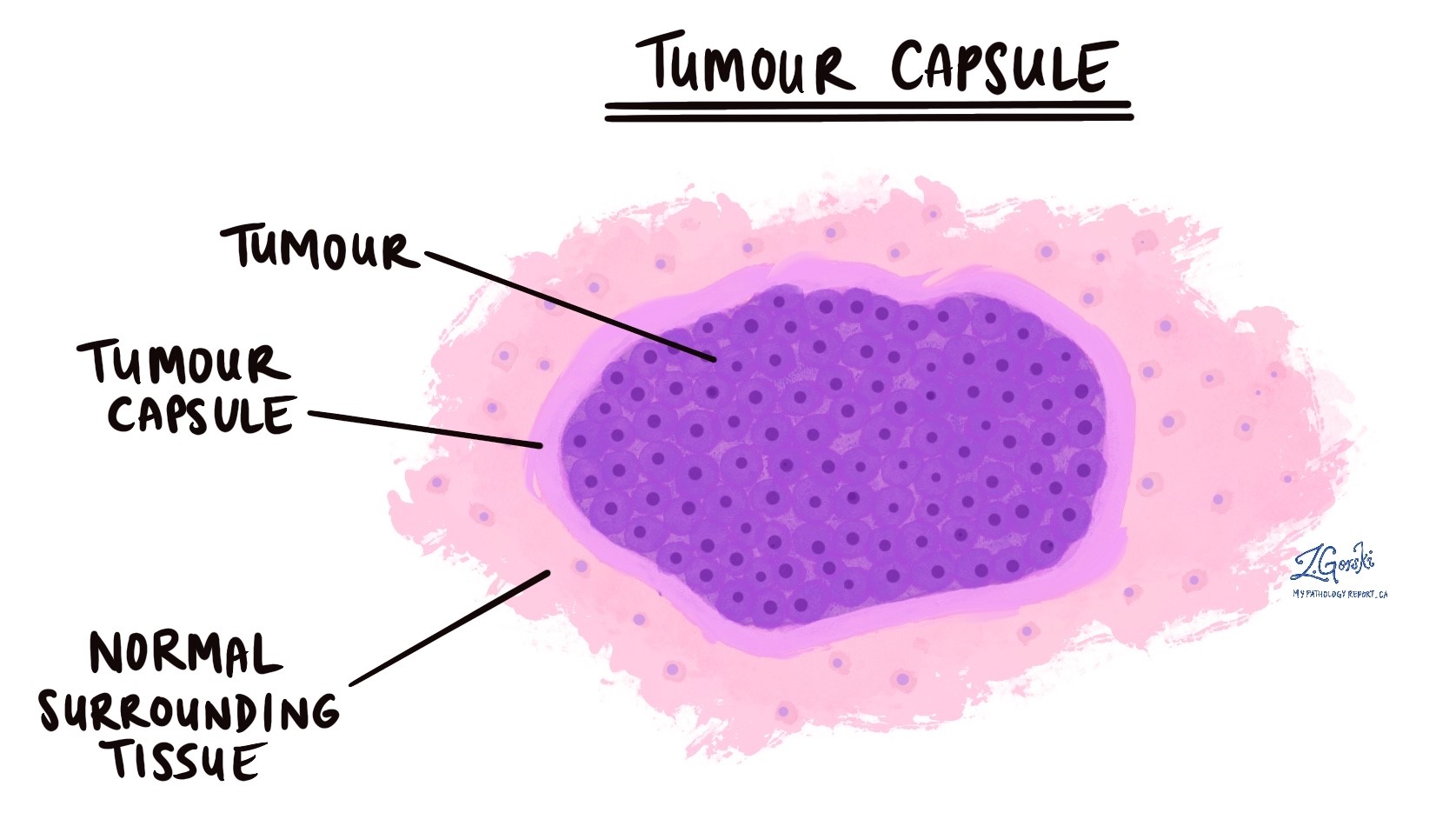A tumour capsule is a thin layer of tissue that separates a tumour from the surrounding healthy tissue. Some tumours are completely surrounded by this capsule—these tumours are described as encapsulated. Tumours without a capsule are called non-encapsulated. Both benign (non-cancerous) and malignant (cancerous) tumours can have a capsule.
What does capsule invasion mean?
Pathologists use the term capsule invasion (also called tumour capsule invasion) to describe cancer cells that have broken through the tumour capsule and invaded nearby healthy tissue. When tumour cells move beyond their capsule into normal tissue, it indicates a more aggressive tumour behaviour.
Capsule invasion is particularly important because, in certain types of tumours, it helps pathologists determine whether a tumour is benign or malignant. For example, certain tumours in the thyroid gland—such as follicular adenoma (a benign tumour) and minimally invasive follicular carcinoma (a malignant tumour)—can look very similar under the microscope. Both have capsules. The crucial difference is that in minimally invasive follicular carcinoma, cancer cells invade through the capsule into the surrounding tissue, while follicular adenoma cells stay completely inside the capsule.
Why is capsule invasion important?
Identifying capsule invasion helps pathologists and doctors:
-
Accurately distinguish between benign and malignant tumours, especially when tumours look similar.
-
Determine how aggressive the tumour is likely to be.
-
Plan the most effective treatment and appropriate follow-up care.
Knowing whether capsule invasion is present can significantly affect your diagnosis, treatment decisions, and prognosis (expected outcome).
How do pathologists identify capsule invasion?
Pathologists carefully examine tissue samples from a biopsy or surgery under a microscope, looking closely at the tumour capsule. They specifically look to see if cancer cells have broken through this barrier and entered nearby healthy tissue. This evaluation helps them clearly classify the tumour and guide your healthcare team in choosing the right treatment.
Questions to ask your doctor
If your pathology report mentions tumour capsule or capsule invasion, you may want to ask your doctor these questions:
-
Does my tumour have a capsule, and is it intact or invaded?
-
What does capsule invasion mean for my prognosis and treatment options?
-
Will I need additional tests or treatments because of capsule invasion?
-
What type of follow-up care or monitoring will I need?
Understanding the term tumour capsule and the importance of capsule invasion can help you feel informed and involved in your healthcare decisions.





